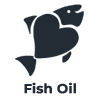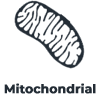Let us dispel the popular Taurine myth: no, Taurine is not made from bull semen (or bull urine, for that matter), despite what many may think. Taurine, or 2-aminoethanesulfonic acid, is an amino acid that has a number of functions within the body. It was first discovered in 1827 by two German scientists named Friedrich Tiedemann and Leopold Gmelin. They actually isolated taurine from the bile of an ox; thus naming it "Taurine" is based on the latin word Taurus. Taurus translates to bull, and the Taurine bull semen association likely stems from Taurine being somewhat of a mystery ingredient in the popular energy drink Red Bull. As there was little clarity from Red Bull’s marketing why there was Taurine in their energy drink, urban legends were quickly developed to explain the addition of taurine to this popular drink. There was even a small panic in the news media in the 1990s that portrayed this amino acid as dangerous. Many consumers may still be confused as to why Taurine is in energy drinks, so lets lift the veil and dive into the ins and outs of Taurine as a health boosting supplement.
A Closer Look At The Top 5 Taurine Benefits
What Is Taurine?

Taurine Structure
So where does Taurine come from? Taurine is a naturally occurring amino acid and is found in a wide variety of foods. You’ll often see a Taurine supplement being described as a “conditional amino acid,” which means that it can be produced by the body. However, it can also be found in meat, fish, dairy, and in supplemental form. While it was first isolated from an ox’s bile, its a very common amino acid found all over nature. Rest assured, though, Taurine these days is derived through synthesis and not from ox bile.
What Does Taurine Do?
• Helps maintain adequate hydration and electrolyte balance in your cells
• Supports healthy central nervous system function and healthy retinas
• Promotes immune system health and helps promote healthy levels of oxidation
• Supports the formation of bile salts, which play an important role in digestion
• Promotes cardiovascular function and development of skeletal muscles
• Aids in the movement of vital minerals like calcium in and out of your cells
What Are The Top 5 Taurine Benefits?

1) Taurine Helps Promote Healthy Cardiovascular Function
It’s been suggested that a diet lacking in Taurine may negatively impact overall cardiovascular health. Adding Taurine into the diet in the form of a Taurine supplement may help promote overall cardiovascular function. Taurine appears to achieve this by lowering homocysteine levels, which is an amino acid that in abundance, is correlated to lowered overall cardiovascular health. Studies have also shown that high Taurine diets can help support healthy cholesterol levels and promote overall blood flow. Furthermore, Taurine can help balance our bodies lipid profiles, help control calcium ion uptake into cells, promote vasodilation, and helps promote healthy levels of oxidation.

2) Taurine Supports Retinal Health
Taurine appears to play an important role in our eyes, as levels of Taurine in the eye are very high. Taurine supports the eye by eliminating oxidizing free radicals that are produced in the eyes by light entering them in high concentrations. This is one of the reasons why it is important to wear good UV blocking sunglasses in bright sunlight conditions! This becomes especially important the older we get, as one of our mains defenses against these oxidizing free radicals is Taurine. In addition to wearing proper eye protections, a Taurine supplement could further help promote overall retinal health.

3) Taurine Supports Our Mood
Taurine appears to play a major regulatory role on both our GABAergic systems and our glycinergic systems. It does this by binding to the designated receptors for each system, which modulates their activity. The overall net effect of this effects should promote relaxation and boost mood. This is likely one of the reasons why Red Bull and other energy drinks include Taurine in their formula. By having a relaxing effect, without producing much lethargy, Taurine can help calm the jitters from caffeine. This might sound familiar to some people familiar with the combination of Caffeine with L-Theanine, as L-Theanine has a similar effect on the caffeine response. Many of the jitters associated with caffeine actually appear to stem from caffeine’s antagonistic effects on the glycinergic system. This is likely where Taurine is influencing the caffeine response the most.
Taurine also appears to be a good mood booster, especially during times of high stress. Furthermore, stress can lead to the dysregulation of stress hormones such as corticosterone and may hamper neuroplasticity by decreasing levels of BDNF in the brain. What makes Taurine interesting in this regard is that it may help normalize these decreases and helps bring balance to the dysregulated stress hormones and neuroplasticity. Furthermore, a taurine supplement can also help promote the formation of nerve cells, as well as their growth and survival in the hippocampus, which is the part of our brain that has a major role in learning and memory.

4) Taurine Promotes Athletic Performance and Weight Loss
A study which examined 11 men ages 18 to 20 found that taking supplemental Taurine for seven days before their workouts, increased their VO2max and allowed for longer training periods before feeling exhaustion. It is believed that Taurine’s effects on oxidation and its cellular protectant properties provided these benefits.
In a separate study, it was also found that people who took Taurine before a heavy weight lifting workout had reduced soreness and reduced markers of muscle damage compared to those who were given a placebo.
It was also found that cyclists who supplemented with 1.66 grams of Taurine before training were found to have a 16% increase in lipid oxidation. Paired with Taurine’s beneficial effects on overall metabolic health, it’s safe to say that this amino acid may support weight loss efforts.
One study even had 15 out of 30 overweight college students taking 3 grams of supplemental taurine a day, with the other half taking a placebo for 7 weeks. The group that was taking 3 grams a day noticed a significant reduction in body weight, which suggests that Taurine produces a beneficial effect on lipid metabolism. Not only was this found in humans, but it was also found in various animal studies that also support the positive effects of a Taurine supplement on overall metabolic health.
Overall, when it comes to the effects of Taurine on the body, it seems like it would be a fantastic choice for athletes. Not only that, but it could also be good to use Taurine for bodybuilding. This is because it may help boost strength, shorten recovery times, and help with trimming down to reveal more muscle tone.

5) Taurine May Promote Longevity
Although minimal research has been done, there is strong evidence that suggests that people with the longest life spans consume higher amounts of Taurine than the rest of the world. Japanese people especially have heavily consumed raw fish for years (a great source of Taurine, which you can read more about below) and their lifespans have generally far exceeded most people in the rest of the world. Since we know taurine not only improves eye and cardiovascular health, but leads to beneficial changes in mood and oxidation, it is easy to see why those with a diet higher in taurine seem to live longer. This is a far cry from the media-manufactured hysteria in the 90s that skewed many people's view of this interesting and beneficial amino acid.
What Are Foods High in Taurine?
Taurine is heavily prevalent mostly in animal-based foods; especially seafood and meat. Although, given that Taurine is a heat sensitive molecule, it can often get destroyed with cooking, which makes it harder to get from most diets unless you often consume raw fish and meat.
Taurine in Shellfish
Clams, scallops, oysters, and shrimp, are excellent sources of natural Taurine. You can find 50mg of Taurine in one ounce of raw shrimp alone! Opt for fresh sea food to minimize the risk of bacterial contamination when eating raw.
Taurine in Fish
Salmon, tuna, and sardines are some of the best varieties of fish with a high Taurine content. Most of these cold-water fish contain between 30-40 milligrams of Taurine per ounce of raw flesh. So, if you don’t enjoy raw shellfish, opt for eating raw fish like sashimi and sushi instead!
Taurine in Other Food Sources
Foods such as beef, lamb, eggs, dairy, dark chicken meat, and seaweed can all have a beneficial effect on your Taurine levels. Although it’s a lot more uncommon to eat some of these proteins raw, you can still find 10mg of Taurine per ounce of cooked varieties. Consider eating rare or medium rare cuts of meat, or opt for organ meats such as liver and heart.
Keep in mind that it is important to note that most successful studies have used doses of 1500 to 3000 mg of Taurine in participants, which makes getting those levels of Taurine quite difficult off the foods in our diet alone. Consider supplementing with a Taurine supplement for an easy and effective way to increase Taurine levels.
Summary: Consider a Taurine Supplement As An Adjunct To Your Current Diet
Countless studies have shown that Taurine consumption can have a vast improvement on your health and well-being; creating an optimal environment for your body to thrive. Through improving your heart health, supporting healthy cardiovascular and metabolic function, and promoting eye health and athletic performance, there’s no denying the importance of Taurine in our diet.
Taurine is generally recognized as safe and, with this in mind, it is a good idea to boost your Taurine levels by utilizing a Taurine supplement. This is especially true if you are using stimulants like caffeine.
View more Nootropics Depot blog articles by clicking the links below:
The Best Supplements to Support Collagen Synthesis and Skin Health
Ashwagandha Benefits: An Ayuverdic Herb For Stress Support, Immune Health, and Restful Sleep
CoQSol-CF CoEnzyme Q10: The Superior CoQ10 Supplement Over Grocery Store Brands
The Top 5 Milk Thistle Health Benefits
Melatonin Supplements: Did You Know This Popular Over The Counter Sleep Aid Is Often Overdosed?
Nootropics Depot's Guide to the Top 10 Natural Nootropics of 2018
EpiCor Immune Health: The Natural Immune Booster Supplement You May Not Know About
Nigella Sativa: The Top Health Benefits of Black Seed Oil Extract
Magnesium Glcyinate vs. L-Threonate: Which Is The Best Magnesium Supplement?
Cognizin Citicoline: A Choline Supplement That Supports Healthy Brain Function
7,8-Dihydroxyflavone: A Brain Health Supplement That May Support Neuroplasticity
Creatine: A Nootropic for Bodybuilders, Athletes, Vegans, Vegetarians Alike
How to Find the Best Curcumin Supplement and What to Know Before You Buy
Comparing Rhodiola rosea Extracts: Rosavins vs. Salidroside
Berberine: A Look at the Potential Benefits of this Versatile Supplement
Lion's Mane Mushroom: Comparing our 1:1: and 8:1 Extracts
Nitric Oxide Boosters Reviewed: L-Citrulline, Agmatine and AAKG
Red Reishi Mushrooms: Comparing our 1:1 and 8:1 Extracts
Comprehensive Guide to the Best Anti-Aging Supplements
Cordyceps Militaris Mushrooms: Comparing our 1:1 and 10:1 Extracts
Bacognize vs. Synapsa: Which Ayurvedic Herb is Right for You?
The Nootropic Synergy of Caffeine + L-Theanine
L-Citrulline vs. L-Citrulline DL-Malate: Which is Best?
Shilajit: A Look at this Amazing Ayurvedic Compound
The Ultimate Guide to Nootropics
Mushroom Extracts: Whole Fruiting Bodies vs. Mycelium On Grain
Teacrine: The Alternative to Caffeine
Zembrin: A Natural Way to Boost Your Mood
Ashwagandha: KSM-66 vs. Sensoril
Panax Ginseng: What You Might Not Know
Palmitoylethanolamide: Known for its Pain Reducing Qualities
Put to the Test: A Look at Nootropics Depot's Purity Testing
Browse More From Nootropics Depot
Ayurveda | Adaptogens | Amino Acids | Choline Supplements | Fitness Supplements | Immune Support | Metabolism Supplements | Mushroom Extracts | Natural Plant Extracts | Natural Nootropic Capsules | Natural Pain Support | Patented Nootropic Extracts | Sleep Support Supplements | Softgels | Solutions + Sublinguals | Enteric Coated Tablets | Nootropic Samples
Attention: These statements have not been evaluated by the Food and Drug Administration These products are not intended to diagnose, treat, cure or prevent any disease.










